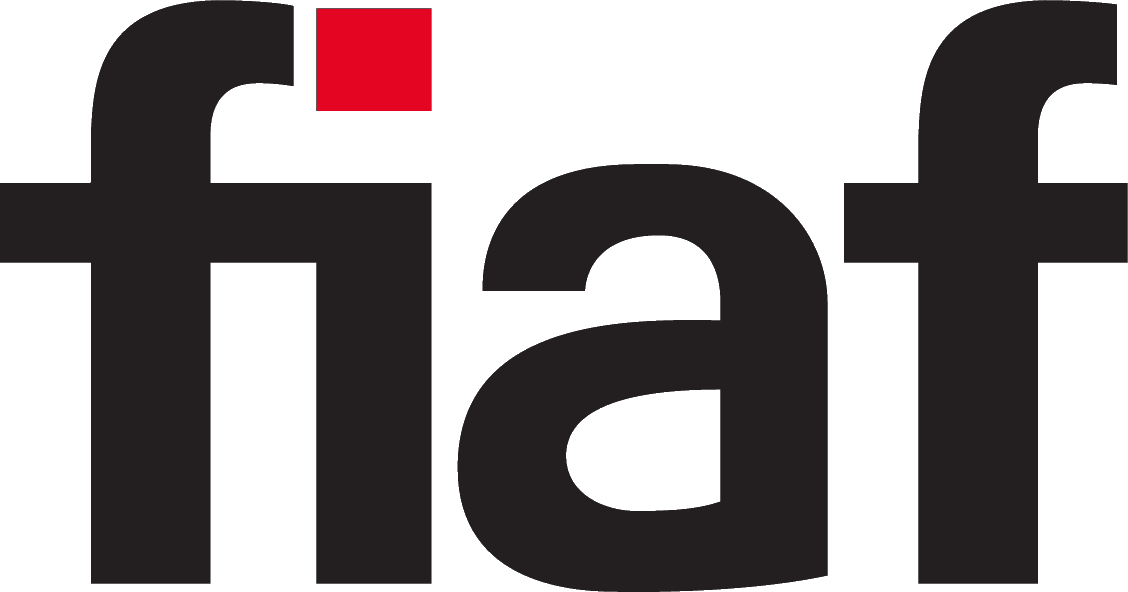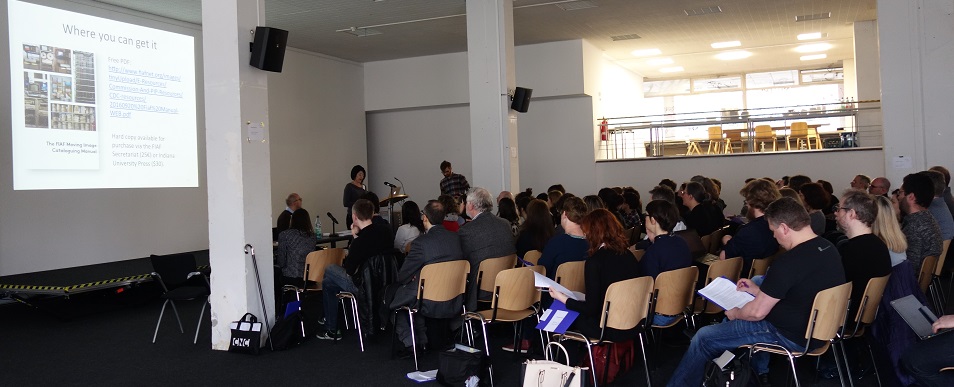Metadata Management in Film Archives
Putting the "Cinematographic Works Standard" EN 15907 to use and introducing the new FIAF Cataloguing Manual
A joint workshop by the Association des Cinémathèques Européennes (ACE) and the FIAF Cataloguing and Documentation Commission
29-30 March 2017, Brandenburgisches Zentrum für Medienwissenschaften (ZEM), Potsdam
The full programme can be accessed HERE and the list of paper abstracts HERE. All the presentations (PDF files) can be found on THIS PAGE of the ACE website.
Since its adoption in 2011, the Cinematographic Works Standard EN 15907 (“CWS”) has framed the cataloguing of moving images and the development of a number of collection management applications for film archives. A growing number of film heritage institutions adopt and apply the EN 15907 structure in their software applications. The tag “EN 15907-compliant” has become a selling point for software vendors and developers in addressing the needs of film archives. The standard was realized in union catalogues and aggregation systems, such as filmarchives-online.eu and europeanfilmgateway.eu. More and more, it is becoming key to sharing cinematographic work-related data between institutions.
During the first five years of working with the CWS, practical experiences have been acquired, challenges for its implementation have been discovered, and open questions have, inevitably, popped up. A survey conducted for a presentation at the FIAF Symposium 2013 in Barcelona showed that three film heritage institutions in Europe had finished CWS implementation, and five institutions were about to implement it. Since then, no systematic evidence of CWS implementation in film archives has been gathered. Hence, it is now due time for review, and for discussing the next steps.
EN 15907 is a central reference for the new FIAF Moving Image Cataloguing Manual (2016), which was created by the FIAF Cataloguing and Documentation Commission and the FIAF Cataloguing Rules Revision Working Group, and published in PDF and hard copy. The guidelines correspond closely with the EN 15907 structure and use associated terminology. Given this, the Manual serves as an important extension of EN 15907 by helping professionals create cataloguing or metadata records that will meet requirements of new database implementations and/or the adoption of new metadata standards.
With Linked Data concepts becoming more mature, new ways of storing and sharing data in film archives open up. Major aggregating initiatives, such as the European Film Gateway and Europeana are also undergoing rapid technological change, and strive for more effective ways to achieve semantic interoperability in the cultural heritage sector. At the same time, many film heritage institutions encounter technical and organizational challenges in adopting Linked Data concepts. The workshop presented the latest approaches and best practices concerning these concepts, and facilitate an open discussion on Linked Data in film archives.
The workshop addressed:
* individuals responsible for collection management applications in film heritage institutions,
* cataloguers and filmographers and
* information professionals from related cultural and media heritage communities.
The workshop took place in three sessions:
Session 1 | Wed 29 March 2017 Afternoon | EN 15907 in practice: Existing applications of the Cinematographic Works Standard in film archives. Experiences, issues, challenges and next steps |
Session 2 | Thu 30 March 2017 Morning | No archive left behind? – The situation in and needs of film archives that have not (yet) applied the CWS |
Session 3 | Thu 30 March 2017 Morning & early afternoon | New ways of managing, storing and sharing metadata in film archives: Linked Data, RDF and concepts beyond the Relational Database paradigm |
Organized by:
In co-operation with FIAF, the Deutches Filminstitut and the Brandenburgisches Zentrum für Medienwissenschaften (ZEM).
Connected to the European Film Gateway and Europeana.
Supported by the European Union.







